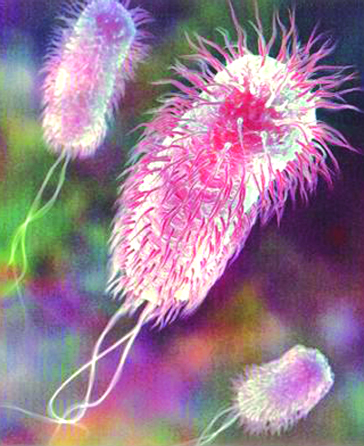
UNB, Dhaka :
A World Bank report released on Thursday found that E. coli bacteria was present in 80 percent of private piped-water taps sampled across the country, a similar rate to water retrieved from ponds.
It said though 98 percent of Bangladesh population has access to water from technologically improved water sources, the water quality is poor.
According to health experts, most E. coli strains are harmless, but some serotypes can cause serious food poisoning in their hosts, and are occasionally responsible for product recalls due to food contamination.
Experts said E. coli is a gram-negative, facultative anaerobic, rod-shaped, coliform bacterium of the genus Escherichia that is commonly found in the lower intestine of warm-blooded organisms.
The World Bank formally launched the report – ‘Promising Progress: A Diagnostic of Water Supply, Sanitation, Hygiene, and Poverty in Bangladesh’ – at a function in a city hotel.
Addressing at the report launching ceremony, State Minister for Water Resources Muhammad Nazrul Islam said the government has
launched 100-years Delta Plan where it was envisioned to ensure peoples’ access to safe drinking water in next 30 years.
“Most of the funds of the Delta Plan 2100 will be spent for the water related issues”, he told the function, also addressed by Sereen Juma, acting country director of World Bank and Roxana Quader, additional secretary of the Local Government Division of the LGRD Ministry.
George Joseph, senior economist of the World Bank, made a presentation on the new water related report.
He said that despite the country’s remarkable progress in improving access to water and sanitation, 41 percent of all improved water sources are contaminated with E. coli (Escherichia coli) bacteria.
A World Bank report released on Thursday found that E. coli bacteria was present in 80 percent of private piped-water taps sampled across the country, a similar rate to water retrieved from ponds.
It said though 98 percent of Bangladesh population has access to water from technologically improved water sources, the water quality is poor.
According to health experts, most E. coli strains are harmless, but some serotypes can cause serious food poisoning in their hosts, and are occasionally responsible for product recalls due to food contamination.
Experts said E. coli is a gram-negative, facultative anaerobic, rod-shaped, coliform bacterium of the genus Escherichia that is commonly found in the lower intestine of warm-blooded organisms.
The World Bank formally launched the report – ‘Promising Progress: A Diagnostic of Water Supply, Sanitation, Hygiene, and Poverty in Bangladesh’ – at a function in a city hotel.
Addressing at the report launching ceremony, State Minister for Water Resources Muhammad Nazrul Islam said the government has
launched 100-years Delta Plan where it was envisioned to ensure peoples’ access to safe drinking water in next 30 years.
“Most of the funds of the Delta Plan 2100 will be spent for the water related issues”, he told the function, also addressed by Sereen Juma, acting country director of World Bank and Roxana Quader, additional secretary of the Local Government Division of the LGRD Ministry.
George Joseph, senior economist of the World Bank, made a presentation on the new water related report.
He said that despite the country’s remarkable progress in improving access to water and sanitation, 41 percent of all improved water sources are contaminated with E. coli (Escherichia coli) bacteria.

